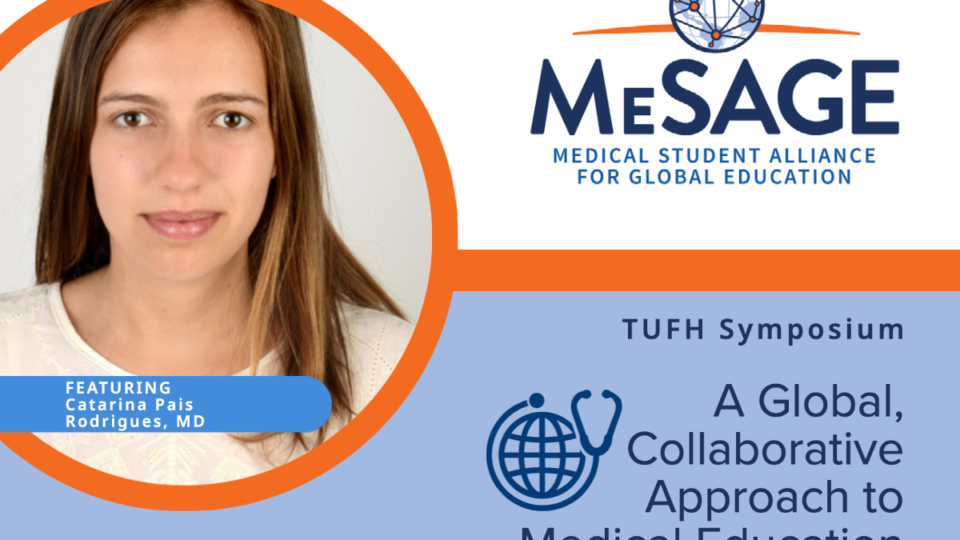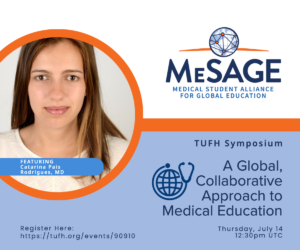TUFH Symposium: A Global, Collaborative Approach to Medical Education

Join the next The Network Towards Unity for Health symposium for an exploration of a global, collaborative approach to medical education
⏳ Thursday, July 14th, at 12:30 pm UTC
Health professionals need to adapt to the 21st-century paradigm shift from health as the absence of disease to a broader perspective of a complete state of physical, mental, and social well-being. No longer centered around the physician, healthcare is a technology-supported collaboration across different disciplines and fields, where communities are at the center of the intervention. How can we develop a medical curriculum that supports these changes? How can we prepare health professionals to address underlying determinants and promote health equity? This symposium will explore how we can involve learners and partners in curriculum development and share a proposal for a global, shared medical education.
Catarina Pais Rodrigues, MD, has been involved in curriculum development and improvement of medical education for over 7 years. As a student leader, she held different roles in pedagogical committees which required her to become well versed with teaching and assessment methodologies, quality assurance mechanisms, and the challenges of curriculum implementation. She also worked extensively with the International Federation of Medical Students’ Associations, where her focus turned more to global health topics and curricular gaps in health professionals’ education. In her current role at ScholarRx, Catarina promotes meaningful student engagement in projects and coordinates the development of educational content on global health matters.

ScholarRx launched the Rx Bricks curriculum project to build a sustainable and accessible approach to medical education. Medical education content is delivered in the form of modular, customizable digital learning experiences called “bricks,” each with its own set of learning objectives. In addition, ScholarRx partnered with student organizations to establish the Medical Student Alliance for Global Education (MeSAGE). MeSAGE identifies educational needs and builds innovative, free, and open access content to address key topics and close curricular gaps.
